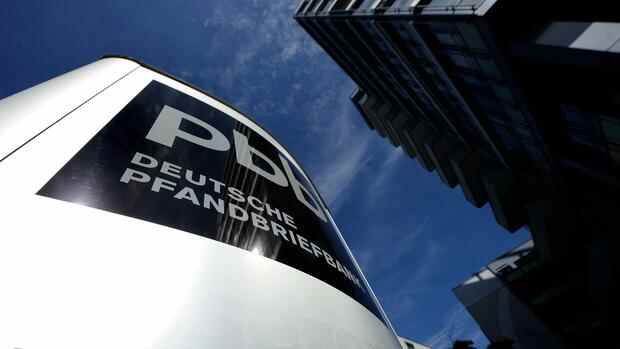The case of the Munich real estate financier is one of the more positive examples in terms of bank bailouts.
(Photo: dapd)
And again a chapter of the financial crisis is closed: The state bank rescue fund FMS has finally sold its remaining 3.5 percent stake in the Munich real estate financier Deutsche Pfandbriefbank (PBB). This means that the former crisis bank Hypo Real Estate is completely privately owned for the first time in more than a decade.
The PBB case is one of the more positive examples of bank bailouts. In total, the FMS has taken in more than 2.5 billion euros with the privatization of the institute since 2015 – more than the 2.3 billion that flowed to today’s PBB during the crisis.
But the overall calculation looks much uglier: By the end of 2020, the financial market stabilization fund had incurred losses of 23.3 billion euros. The 15.6 percent stake in Commerzbank, for example, is only worth a fraction of the purchase price.
One reason for the big minus is the way in which the German government at the time saved the banks. In the USA, the administration forced billions of dollars in taxpayers’ money on the financial institutions as equity, but the government helped to steer the restructuring and fired the responsible board members.
Top jobs of the day
Find the best jobs now and
be notified by email.
At the end of the rescue operation there was a decent profit. In Germany, on the other hand, the federal government opted for a complicated compromise between state guarantees and silent participations – with the well-known sobering result.
Where politics has learned
The good news, however, is that politics is capable of learning. When it came to bailing out companies again during the corona crisis – this time not banks – the government negotiated much tougher. In the pandemic, the state does not appear as a selfless helper, but rather has its support partially rewarded at lucrative rates.
This strategy is legitimate. On the one hand, particularly strict criteria should apply to the use of taxpayers’ money. On the other hand, the strict conditions ensure that only solid, viable companies are supported.
This calculation will not always work out, but the first positive example already exists: Lufthansa has repaid all government loans and silent participations totaling 3.5 billion euros earlier than expected. All that remains of the Corona rescue operation is the state’s share package of 14 percent, which, as contractually stipulated, is to be sold by October 2023 at the latest. The chances are good that in the end the state will not have to pay extra, but will earn money – just like the Americans once did with the bank bailout.
More: Federal government extends corona aid
